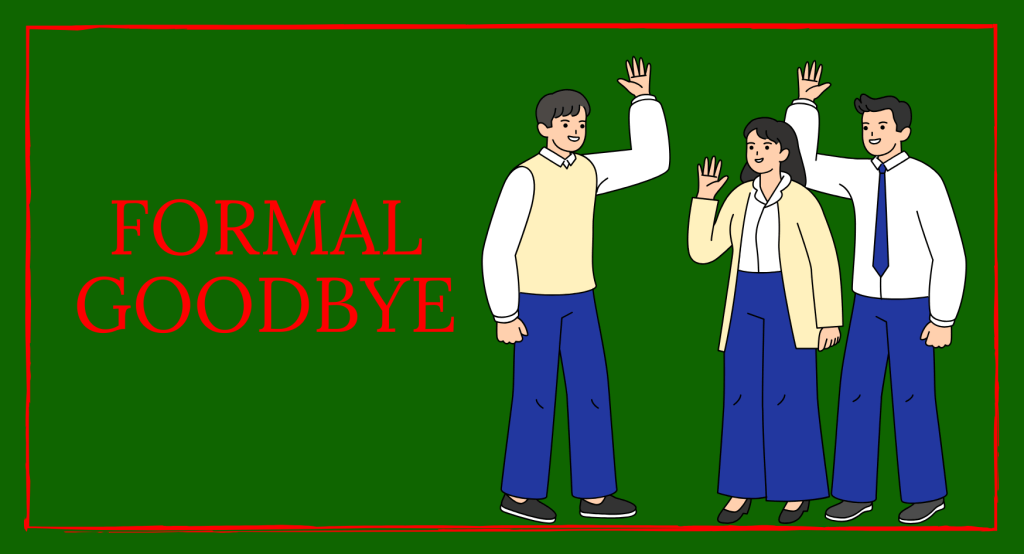Exploring the ’21 Ways to Say ‘Goodbye’ in Portuguese’ is more than learning how to wave farewell. It gives us a peek into the cultural nuances of the Portuguese-speaking world.
Each way of saying goodbye carries its unique emotional and situational weight. This not only helps us communicate better but also shows us how people interact in different Portuguese-speaking areas. Understanding these differences gives us valuable insights into the role of farewells in social interactions.
This makes us think, doesn’t it? How do different farewells affect our views on whether an interaction is formal or intimate?
How to Say “Goodbye” in Portuguese

Learning different ways to say ‘goodbye’ in Portuguese can really boost your ability to chat in this vibrant language.
The easiest and most common way to say farewell is “Adeus,” which means ‘goodbye.’ This word is understood by everyone, but it often sounds quite formal or final, as if you’re saying goodbye for a long time.
Another popular choice is “Tchau,” which actually comes from Italian but is fully embraced in Portuguese-speaking areas. It’s a lighter, friendlier way to say goodbye, perfect for casual situations.
If you need something a bit more formal than “Tchau” but less heavy than “Adeus,” you can go with “Até logo” or “Até mais,” which are great for when you’re planning to see someone again soon.
Unique Ways to Say “Goodbye” in Portuguese (FORMAL)

Exploring less common ways to say goodbye in Portuguese offers a glimpse into a rich variety of expressions. These are perfect for different situations and relationships.
| Portuguese Expression | English Translation |
|---|---|
| Adeus | Farewell |
| Até amanhã | See you tomorrow |
| Até breve | See you shortly |
| Até à próxima | Until next time |
| Fico à disposição | I remain at your disposal |
| Foi um prazer | It was a pleasure |
| Tenha um bom dia | Have a good day |
| Tenha uma boa noite | Have a good evening/night |
| Tenha uma boa semana | Have a good week |
| Vá com Deus | Go with God |
| Despeço-me cordialmente | I bid you farewell cordially |
| Cordiais saudações | Cordial greetings |
| Muito obrigado(a), até logo | Thank you very much, see you soon |
| Agradeço a atenção | I appreciate your attention |
| Com os melhores cumprimentos | With best regards |
| Até uma próxima oportunidade | Until another opportunity |
| Saudações | Greetings |
| Desejo-lhe tudo de bom | I wish you all the best |
| Foi um prazer conhecê-lo(a) | It was a pleasure meeting you |
Each expression adds a special cultural and emotional touch to saying farewell.
Also Read: 35 Unique And Creative Ways To Say “Hello” In Portuguese
Different Ways to Say “Goodbye” in Portuguese (INFORMAL)

Here are different ways to say an informal “Goodbye” in Portuguese. These informal expressions are widely used among friends, family, or casual acquaintances.
| Portuguese Expression | English Translation |
|---|---|
| Tchau | Bye |
| Tchauzinho | Bye-bye |
| Falou | Later |
| Até mais | See you later |
| Até logo | See you soon |
| A gente se vê | See you around |
| Até a próxima | Until next time |
| Valeu | Thanks, see ya |
| Fui! | I’m out! |
| Partiu | I’m off! |
| Nos falamos depois | Talk to you later |
| Se cuida | Take care |
| Vai nessa | Go for it |
| Até já | See you in a bit |
| Até depois | See you later |
| Beijo! | Kiss! |
| Abraço! | Hug! |
| Inté | See ya |
| Chau | Bye |
Also Read: 20 Ways To Say “Thank You” In Portuguese
Conclusion
Learning different ways to say ‘goodbye’ in Portuguese helps you communicate better and more sensitively in various situations. When you know these expressions, you can interact with Portuguese speakers more thoughtfully and effectively.
Whether you use a casual ‘Tchau’ with friends, a formal ‘Despeço-me’ at work, or a heartfelt ‘Adeus’ when saying a deep farewell, each phrase has its own role and expresses different feelings.
This ability to choose the right word not only improves how you talk but also helps you connect more with the Portuguese language and its people. Keep this in mind as you dive deeper into the beautiful world of Portuguese communication. Keep visiting the Translation Blog for more translation articles like this.

